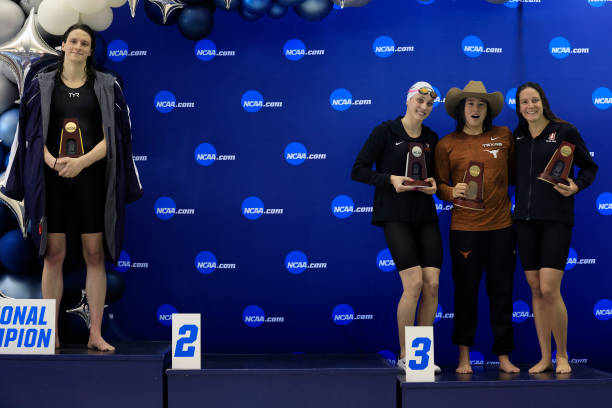For many student-athletes, the dream of playing sports at the collegiate level while earning a degree is made possible through NCAA scholarships. The National Collegiate Athletic Association (NCAA) is the largest and most well-known organization governing college sports in the United States. It offers scholarships to talented athletes across a wide range of sports, helping them balance their academic and athletic pursuits. This article provides an in-depth look at NCAA scholarships, including eligibility requirements, the application process, and tips for securing these coveted awards.
What Are NCAA Scholarships?
NCAA scholarships are financial awards given to student-athletes who demonstrate exceptional talent in their respective sports. These scholarships are offered by colleges and universities that are members of the NCAA. They cover partial or full tuition, room and board, books, and other educational expenses. The NCAA itself does not award scholarships directly; instead, individual schools distribute them based on athletic ability, academic performance, and other factors.
The NCAA is divided into three divisions:
- Division I: The most competitive level, offering the most scholarships.
- Division II: A balance of athletics and academics, with fewer scholarships than Division I.
- Division III: Focuses on academics and does not offer athletic scholarships (but may provide other forms of financial aid).
Eligibility Requirements
To qualify for an NCAA scholarship, student-athletes must meet specific academic and athletic criteria. Here’s a breakdown of the key requirements:
- Academic Eligibility
- Core Course Requirements: Students must complete a minimum number of high school core courses, including English, math, science, and social studies.
- GPA and Test Scores: A minimum GPA (usually 2.3 for Division I and 2.2 for Division II) and SAT/ACT scores are required. The NCAA uses a sliding scale to balance GPA and test scores.
- Graduation Timeline: Students must graduate from high school on time (within eight semesters).
- Athletic Eligibility
- Students must demonstrate exceptional skill in their sport. Coaches evaluate athletes based on performance, potential, and fit for their program.
- Athletes must register with the NCAA Eligibility Center and provide transcripts, test scores, and proof of amateurism.
- Amateurism
- The NCAA requires student-athletes to maintain their amateur status. This means they cannot have accepted payment for playing their sport or signed a professional contract.
Sports Covered by NCAA Scholarships
The NCAA offers scholarships for a wide range of sports, including:
- Men’s Sports: Football, basketball, baseball, soccer, track and field, swimming, wrestling, and more.
- Women’s Sports: Basketball, volleyball, soccer, softball, gymnastics, tennis, and more.
Some sports, like football and basketball, offer a higher number of scholarships, while others, such as fencing or rifle, offer fewer.
How to Apply for NCAA Scholarships
Securing an NCAA scholarship requires careful planning and preparation. Here’s a step-by-step guide:
- Start Early
- Begin preparing as early as your freshman or sophomore year of high school. Focus on maintaining a strong GPA and excelling in your sport.
- Register with the NCAA Eligibility Center
- Create an account on the NCAA Eligibility Center website and complete your profile. Submit your transcripts, test scores, and proof of amateurism.
- Build a Sports Resume
- Highlight your athletic achievements, including stats, awards, and accolades. Include videos of your performances to showcase your skills.
- Contact College Coaches
- Reach out to coaches at schools you’re interested in. Attend camps, showcases, and tournaments where coaches may be scouting talent.
- Apply to Schools
- Apply to colleges that offer your sport and align with your academic and athletic goals. Ensure you meet their admission requirements.
- Sign a National Letter of Intent (NLI)
- If offered a scholarship, you’ll sign an NLI, which is a binding agreement to attend the school and participate in their athletic program.
Tips for Securing an NCAA Scholarship
- Focus on Academics
- Strong academic performance increases your chances of receiving a scholarship. Aim for a high GPA and competitive test scores.
- Showcase Your Talent
- Participate in high-profile tournaments and events where college coaches are likely to be present. Create highlight videos to share with coaches.
- Be Proactive
- Don’t wait for coaches to find you. Reach out to them with your resume, videos, and a personalized message.
- Consider Division II or III Schools
- If Division I scholarships are out of reach, explore opportunities at Division II or III schools, which may offer a better balance of athletics and academics.
- Stay Committed
- The process can be competitive and time-consuming. Stay focused on your goals and keep improving both on and off the field.
Benefits of NCAA Scholarships
- Financial Support
- Scholarships can significantly reduce the cost of college, making higher education more accessible.
- Academic and Athletic Development
- Student-athletes receive support from academic advisors, tutors, and coaches to help them succeed in both areas.
- Exposure and Opportunities
- Playing at the collegiate level can open doors to professional sports careers or other opportunities in the sports industry.
- Networking
- Student-athletes build connections with coaches, teammates, and alumni, which can be valuable for future career prospects.
Challenges to Consider
- Time Commitment
- Balancing academics and athletics can be demanding. Student-athletes must manage their time effectively.
- Injury Risks
- Injuries can impact athletic performance and scholarship eligibility. It’s important to prioritize health and recovery.
- Pressure to Perform
- The competitive nature of college sports can be stressful. Mental health support is essential for student-athletes.
Conclusion
NCAA scholarships provide a unique opportunity for student-athletes to pursue their passion for sports while earning a college degree. By meeting academic and athletic requirements, staying proactive, and showcasing their talent, aspiring athletes can increase their chances of securing these prestigious awards. Whether you dream of playing in front of thousands or simply want to continue your athletic journey, NCAA scholarships can help turn your goals into reality.

